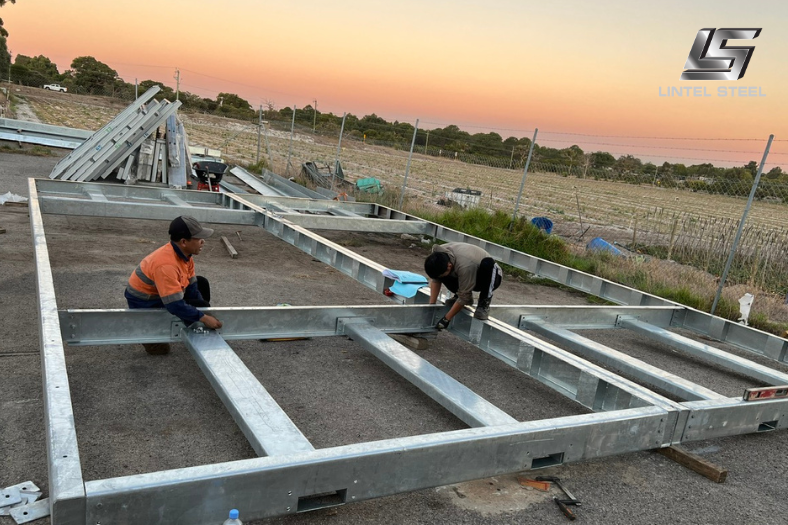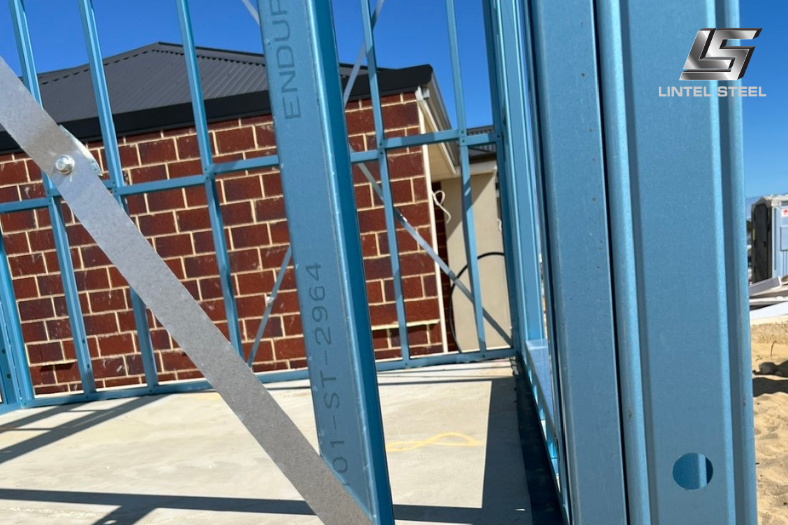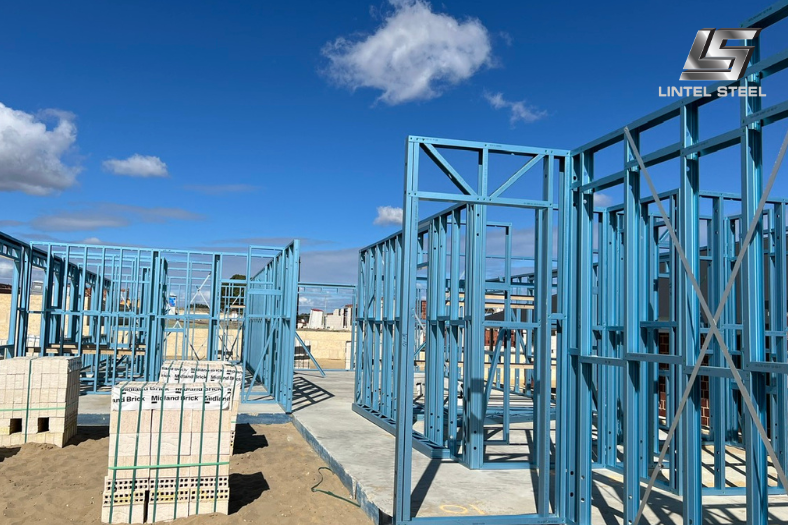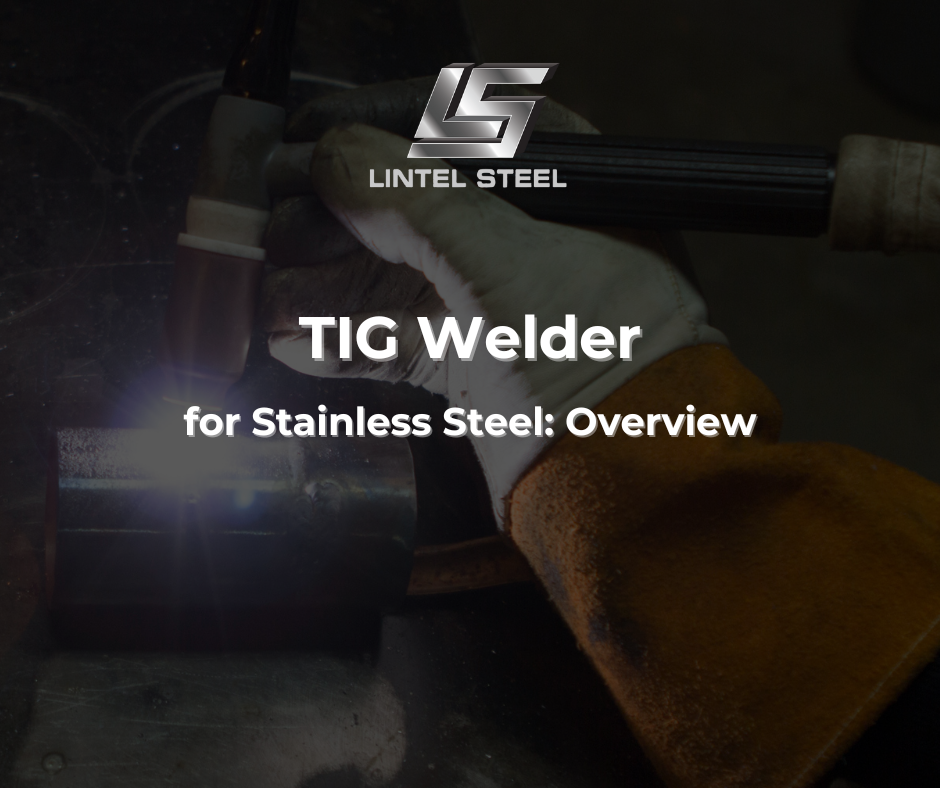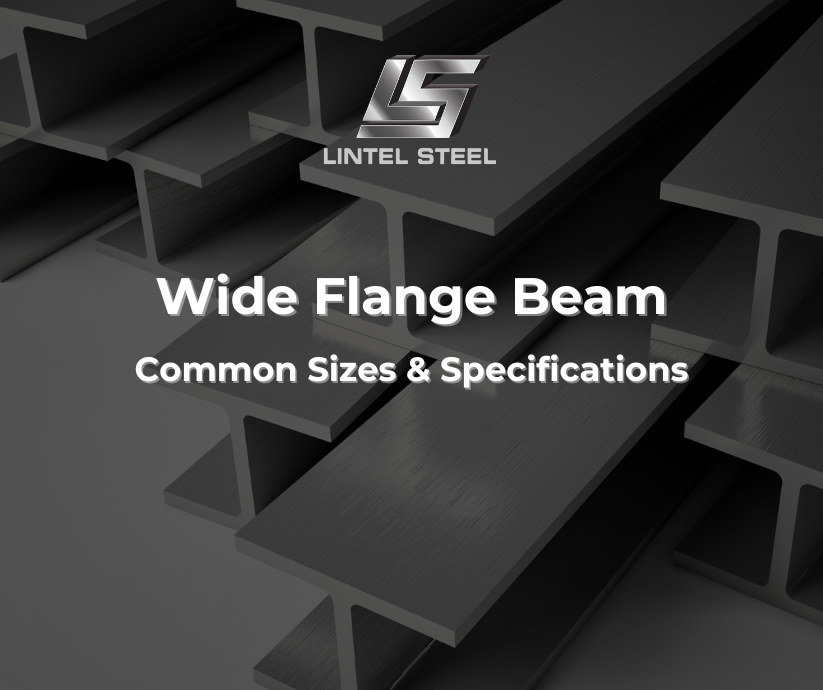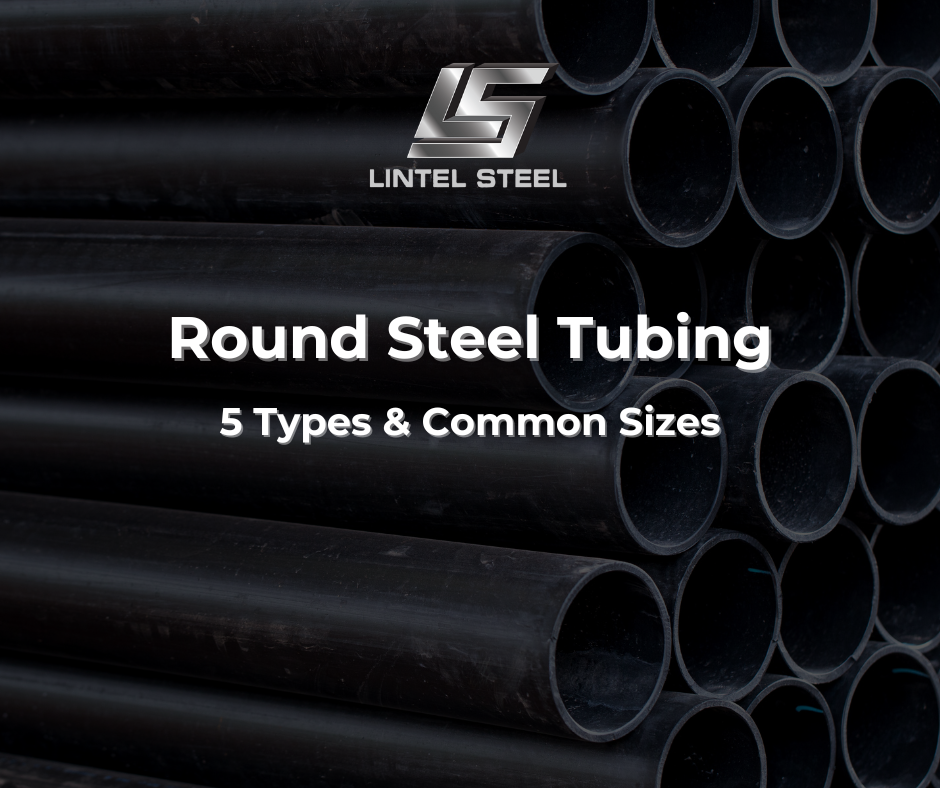Steel Frame Homes: 5 Reasons They’re the Future of Sustainable Housing
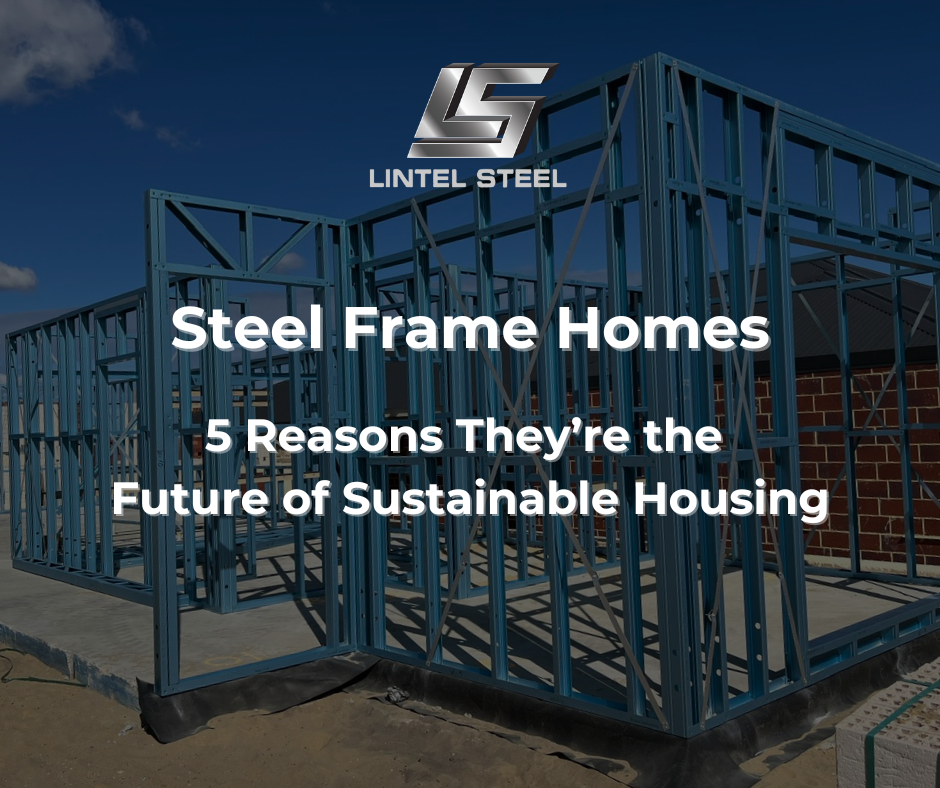
The modern homeowner is no longer satisfied with traditional materials that warp, rot, or weaken over time. As energy efficiency, strength, and sustainability become top priorities, steel frame homes are emerging as the smarter alternative to conventional timber-framed houses. With unmatched durability, precision engineering, and long-term cost efficiency, these homes are reshaping how Australians build and live — especially in areas like Perth, where climate, cost, and performance matter more than ever.
What Are Steel Frame Homes?
Steel frame homes use high-tensile steel sections as the main structural framework of a building. Instead of timber, walls, roofs, and floors are supported by lightweight but incredibly strong steel components — typically galvanised to resist rust and corrosion.
The frames are prefabricated in precise dimensions, then assembled quickly on-site, resulting in a home that is straighter, sturdier, and longer-lasting. Steel frame construction also minimises on-site waste and reduces build time, which is a significant advantage for builders and homeowners alike.
Why Homeowners Choose Steel Frame Homes
The growing popularity of steel frame homes in Australia is no accident. Homeowners, builders, and developers are all recognizing the clear advantages that steel brings to modern construction — from unmatched strength to eco-conscious design. Here’s why so many are making the switch:
- Exceptional Durability and Strength
Steel frame homes are built to last for decades, even under the toughest Australian conditions. Steel is non-combustible, termite-proof, and resistant to moisture, rot, and mold. Unlike timber frames, it won’t warp, crack, or swell when exposed to heat or humidity. This makes steel framing especially ideal for coastal areas like Perth, where salt air and changing temperatures can quickly damage traditional materials. In short, steel ensures that your home’s structure remains straight, true, and solid — for generations.
2. Long-Term Value and Lower Maintenance
While the upfront investment for steel frame homes might be slightly higher, the long-term savings are undeniable. Steel’s resistance to pests, fire, and corrosion means fewer repair costs and minimal maintenance over the years. You also save on insurance premiums in some cases, thanks to the improved safety rating of a steel structure. When you factor in its lifespan — often exceeding 50 years — it becomes clear that steel framing is one of the most cost-effective choices a homeowner can make.
3. Faster and More Efficient Construction
Because the frames are prefabricated off-site using precision engineering, construction time for steel frame homes is significantly reduced. There’s no waiting for timber to dry, no weather delays due to material shrinkage, and minimal on-site waste. Builders can assemble steel components like a kit, ensuring a quicker and cleaner build. For homeowners eager to move in or investors working on tight schedules, this speed translates directly to savings in labor and project management.
4. Eco-Friendly and Sustainable Choice
Sustainability is more than a trend — it’s a necessity. Steel is 100% recyclable and can be reused multiple times without losing strength or quality. Many steel frame homes today are made from recycled steel, reducing the demand for raw materials and minimising carbon footprint. Plus, since steel doesn’t produce sawdust or offcuts like timber, there’s less construction waste heading to landfills.
5. Precision, Design Flexibility, and Modern Appeal
Steel framing allows architects and homeowners to explore more creative, open designs that would be difficult or expensive to achieve with timber. Whether you’re building a large open-plan living space or a multi-story residence, steel frame homes offer structural stability without bulky support columns. The precision of computer-engineered components ensures every piece fits perfectly, resulting in straighter walls, seamless joints, and modern aesthetics that last.
Steel Frame Home Construction Process
Building a steel frame home combines modern engineering with efficient building methods. The process is streamlined, predictable, and designed for quality control at every stage:
- Design and Engineering
The journey starts with digital design. Architects and engineers use 3D modeling and CAD software to plan every beam, stud, and joint of the home. This ensures perfect alignment, precise load distribution, and compatibility with roofing, insulation, and cladding systems. - Prefabrication
Once the design is approved, the steel components are cut, punched, and pre-assembled in a controlled factory environment. This eliminates measurement errors and guarantees that every section meets Australian building standards. Each frame is clearly labeled and packed for quick installation on-site. - On-Site Assembly
When the prefabricated sections arrive, builders can erect the steel frame quickly and safely. Compared to traditional methods, the assembly is faster, cleaner, and less dependent on weather conditions. The steel skeleton provides the structure for walls, floors, and roofs — forming a perfectly square and level foundation for the rest of the home. - Finishing and Cladding
After the frame is in place, the rest of the build proceeds much like a conventional home. Exterior cladding, insulation, roofing, and interior finishes are added. However, because steel frame homes maintain perfect alignment, the finishing process is smoother, resulting in tighter seals, better insulation, and fewer issues with cracking or uneven surfaces later on.
Steel Frame Homes vs Timber Homes
| Feature | Steel Frame Homes | Timber Frame Homes |
| Durability | Resistant to fire, pests, and moisture | Vulnerable to termites and rot |
| Maintenance | Low maintenance, no warping | Requires ongoing treatment |
| Sustainability | Recyclable and eco-friendly | Non-renewable resources if not responsibly sourced |
| Cost | Slightly higher initial investment | Lower upfront, higher maintenance |
| Longevity | 50+ years with minimal issues | 20–30 years with regular care |
The comparison clearly shows that steel frame homes deliver superior long-term performance, especially in Australia’s variable climate.
Common Applications of Steel Frame Homes
Steel framing isn’t just for large-scale commercial or industrial projects anymore. It’s now widely used in:
- Residential Houses – Single-story, double-story, or modular homes
- Granny Flats – Compact, energy-efficient secondary dwellings
- Prefabricated Homes – Factory-made steel homes for fast installation
- Rural and Coastal Homes – Perfect for regions exposed to moisture, salt air, and termites
How to Choose a Steel Frame Home Builder
If you’re planning to build a steel frame home, choose a builder who:
- Has experience with light gauge steel framing systems
- Uses high-quality galvanised or powder-coated steel
- Offers a structural warranty (usually 25–50 years)
- Can integrate insulation, cladding, and finishing materials seamlessly
- Provides design flexibility for your preferred architectural style
Where to Buy Steel Frame Homes in Perth
In Perth, several reputable builders and steel suppliers specialise in steel frame homes and prefabricated housing systems. When comparing options, look for:
- Local experience with Australian building standards
- Certified materials (AS/NZS compliance)
- Transparent pricing and custom design support
- Turnkey services including fabrication, assembly, and finishing
Partnering with a trusted local supplier ensures not only high-quality steel but also faster delivery and expert support from start to finish.
Conclusion
Steel frame homes represent the evolution of modern housing — combining the strength of industrial-grade steel with the efficiency and flexibility of contemporary design. Whether you’re building your first home, an investment property, or a long-term residence, steel framing offers peace of mind, sustainability, and value that traditional materials simply can’t match.
From the durability of the frame to the beauty of the finish, steel is redefining how we think about home construction — one strong, sustainable build at a time.
You can find out more about us at our Fanpage Lintel Steel.

